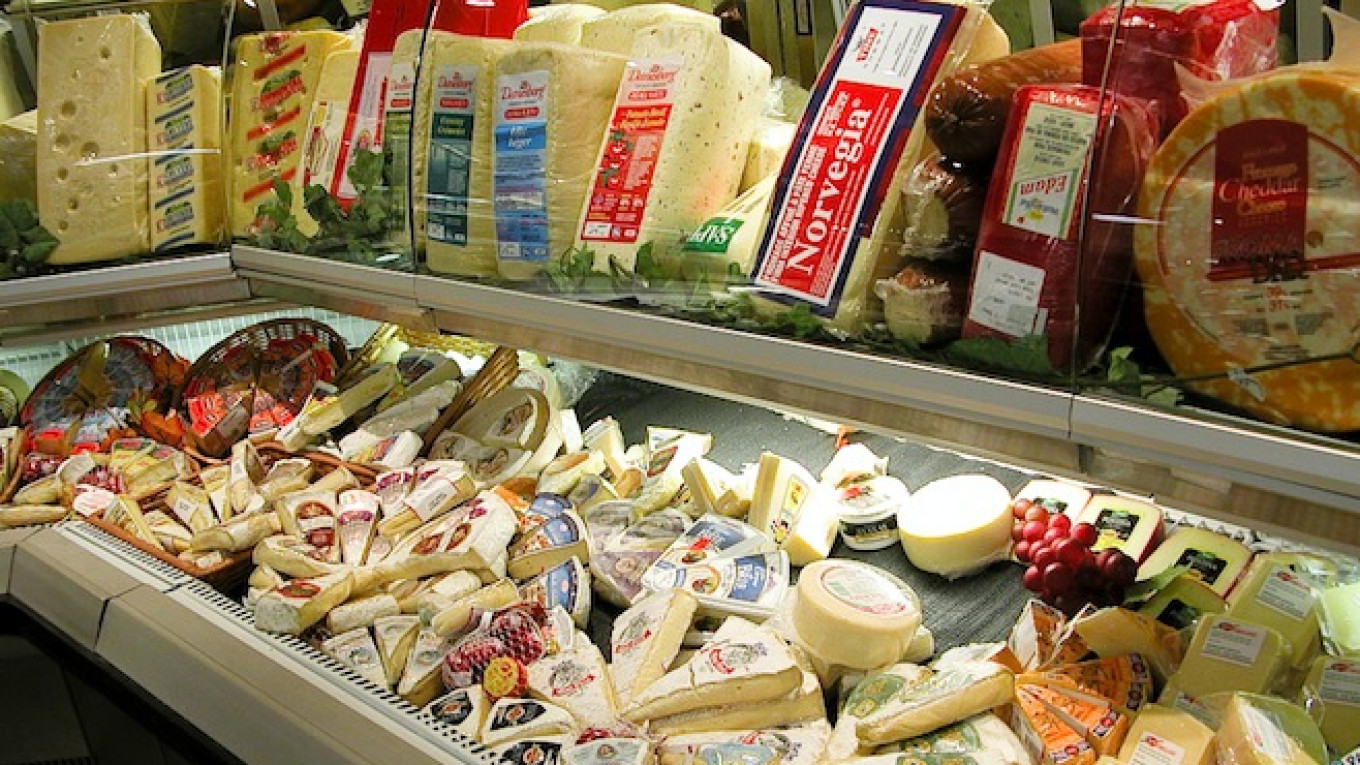Sanctioned foods from the United States and European Union discovered inside Russia's borders will be subject to “immediate destruction” under new rules announced by the Agriculture Ministry Tuesday, the Interfax news agency reported.
The measures seek to clamp down on flows of food that became contraband after Russia last August banned imports of fruit, vegetables, dairy, meat and fish worth around $9 billion per year from the U.S., EU and some other countries that sanctioned Moscow over its role in the crisis in Ukraine.
Smuggling immediately boomed following the import ban, and Russian customs authorities have busted shipments of banned goods crossing the border under the guise of products such as salt, cardboard and building materials. The deliveries often come via Kazakhstan and Belarus, with whom Russia is united in a free trade zone without customs checkpoints.
The new rules, which were blessed last week by President Vladimir Putin, provide instructions to customs and other officials on how to confiscate and dispose of banned goods as soon as they are discovered, rather than return them to their owner.
Announcing the measures on Tuesday, First Deputy Agriculture Minister Yevgeny Gromyko called the flow of contraband goods “significant,” according to Interfax.
He also said the ministry had not yet come up with a mechanism to safely dispose of illegally imported meat products.
Three federal agencies will be responsible for the destruction of banned produce: the Federal Customs Service and two consumer safety watchdogs, Rosselkhoznadzor and Rospotrebnadzor, news agency RIA Novosti reported, citing the Agriculture Ministry.
Food prices shot up dramatically following the import ban's imposition last year, and consumer choice has been limited. However, new suppliers and local producers have since restored some of the lost product range available in Russian grocery stores.
Although the government has presented the ban on Western food imports — which will run through August 2016 — as an opportunity for Russia's agriculture sector to boost production, Russia's economy is in recession and investment in the sector has been stymied by difficult access to cheap loans.
A Message from The Moscow Times:
Dear readers,
We are facing unprecedented challenges. Russia's Prosecutor General's Office has designated The Moscow Times as an "undesirable" organization, criminalizing our work and putting our staff at risk of prosecution. This follows our earlier unjust labeling as a "foreign agent."
These actions are direct attempts to silence independent journalism in Russia. The authorities claim our work "discredits the decisions of the Russian leadership." We see things differently: we strive to provide accurate, unbiased reporting on Russia.
We, the journalists of The Moscow Times, refuse to be silenced. But to continue our work, we need your help.
Your support, no matter how small, makes a world of difference. If you can, please support us monthly starting from just $2. It's quick to set up, and every contribution makes a significant impact.
By supporting The Moscow Times, you're defending open, independent journalism in the face of repression. Thank you for standing with us.
Remind me later.


